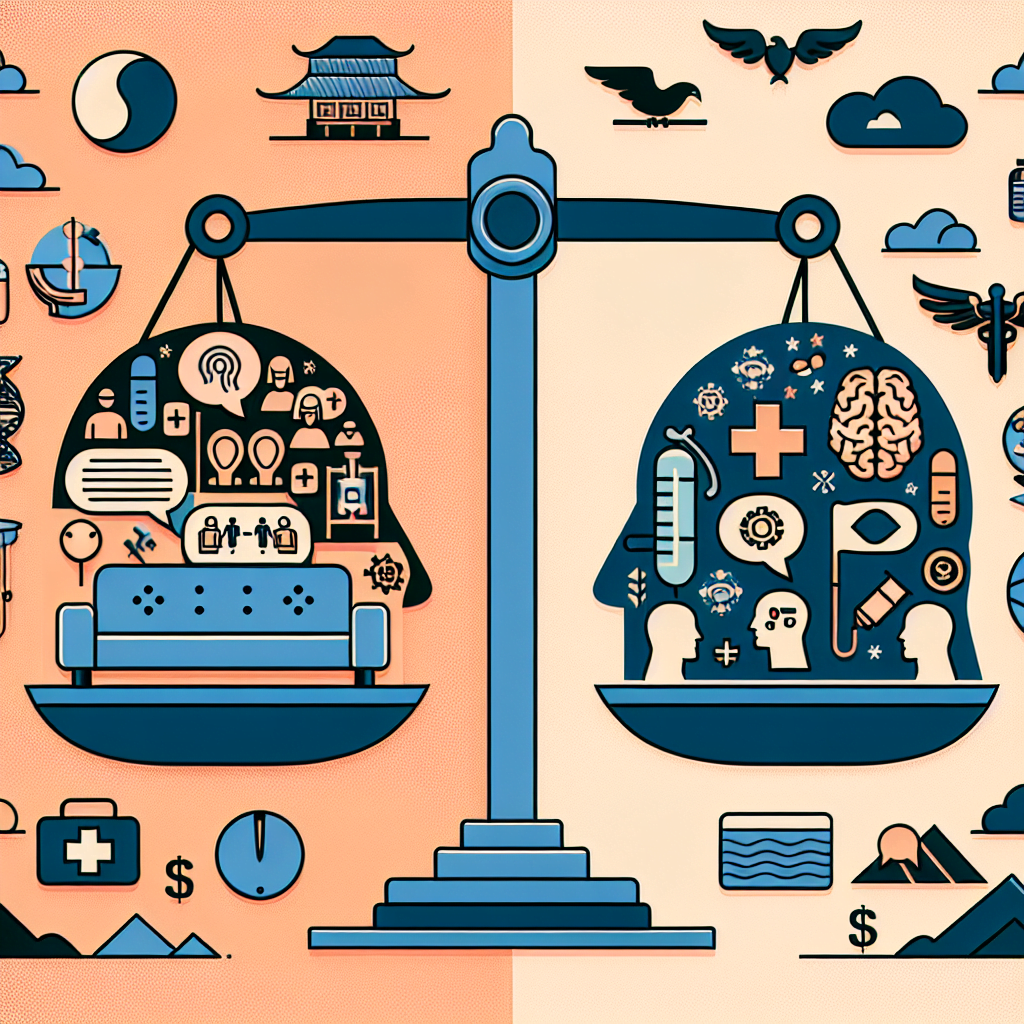Balancing Personal and Professional Life: The Real Cost of Employee Marriage Problems on Work Performance and Essential Countermeasures
A famous saying goes, ‘we leave our personal problems at the door when we come to work’. While this may be the ideal case, it’s almost never the reality. Struggles at home, particularly marriage problems, can seriously affect a person’s work performance. Understanding how these interfere with productivity & strategizing accordingly can lead to a healthier, more effective workplace.
Introduction
In an ideal world, we’d swivel gracefully on the pivot point between our private and professional lives, each hemisphere remaining joyfully oblivious of the other. But the reality proves more complex. While the concept of work-life balance may be a modern mantra, maintaining equilibrium amid the ceaseless gyrations of everyday life is far from a simple task.
We not only tote our personal lives into the workplace but also lug home the stresses and strains of our professional roles. The two worlds, however much we seek to extricate them, are intertwined and co-dependent. This blend becomes most evident—and most detrimental—when we face personal upheavals, especially marital discord.
Marital problems are to a happy work-life what a sledgehammer is to a china shop. These personal dilemmas don’t just puncture our ability to compartmentalize; they sap the enthusiasm, dedication, and emotional energy needed for us to perform our roles effectively. This interplay between personal struggles and work performance is typically overshadowed or ignored, rendering the cost on both the individual and the collective productivity invisible, yet devastatingly real.
In this discourse, we’ll dig deeper into this under-explored terrain and scrutinize how the stress from marriage problems at home impacts work performance. Through this, we aim for a deeper understanding that will ultimately enable us to formulate strategies to address such situations holistically, lending relief to both individuals and workplaces alike.
The Real-life Problem
Marriage problems place an enormous emotional burden on employees, and the toll it can take on work performance is hard to understate. According to a study referenced in the “Rewriting Marriage Contracts” article, marital stress can lead to distraction, disengagement, and a significant decrease in productivity.
When work begins to feel like just another battlefront, the emotional energy expended can leave employees feeling deeply fatigued, and this tiredness isn’t something a good night’s sleep can fix. An exhausted employee may struggle to concentrate, causing the quality of their work to decline and their professional relationships to fray.
Moreover, an individual grappling with marital woes might retreat from their colleagues, perhaps to elude prying questions or avoid appearing vulnerable. This self-imposed isolation can cause rifts in team dynamics and stand in the way of effective collaboration.
The real crux of the problem is this: marriage problems don’t just stay at home. They seep into the workplace, draining productivity and diluting morale. Thus, addressing these issues isn’t a matter of meddling in personal affairs—it’s about fostering an environment where employees can perform at their best. Employers need to recognize the critical role they can play in helping their team navigate such personal storms, creating a working environment that supports rather than suppresses. Only then can we renounce the myth that personal problems can simply be left at the doorstep when we arrive at work.
The Devil in the Details: Unpacking the Impact
Marital stress can stealthily creep into a person’s professional life, wreaking havoc on their output and workplace relations. This impact is neither slight nor subtle. In fact, its ramifications are much broader than one might initially recognize, touching on productivity, communication, job satisfaction, and even the balance between work and life.
As one navigates the choppy waters of marital stress, productivity often takes the first hit. The mental and emotional energy expended on personal problems can leave an employee drained, with less fuel to channel towards work tasks. As a result, what was previously a manageable workload might become overwhelming. The quality of outputs may slump, and deadlines may come and go unmet.
Furthermore, the stress of marriage problems can tilt an individual’s work-life balance precariously. An unhappy home environment may propel them into spending more hours at work, viewing it as a refuge, or conversely, they might rush out of the office to resolve home issues, leaving tasks unfinished. It’s a lose-lose situation, resulting in a teetering scale where neither work nor home life is sufficiently catered to.
In terms of communication, the very dynamics of interacting with colleagues can be affected. Marital stress can lead to an employee becoming withdrawn, irritable, or overly sensitive – often leading to misunderstanding and friction amongst team members. Regular disagreements or conflicts can erode overall team morale, which indirectly affects everyone’s performance.
Lastly, let’s turn our lens to job satisfaction. An employee dealing with significant marriage problems might find it increasingly hard to feel satisfied or fulfilled at work. A distressed emotional state can foreclose on the positivity, sense of accomplishment, or joy once derived from professional successes. The result is an employee who’s merely going through the motions, detached and emotionally unavailable.
In a nutshell, marital stress doesn’t only inflict personal suffering – its tentacles reach deep into the workplace. It’s like a lurking imp silently sabotaging the machinery of a well-oiled enterprise. That’s why mastering this beast becomes imperative, both for the well-being of individual employees and overall business success.
Toolbelt of Solutions: Strategies for Overcoming Marital Stress and Enhancing Productivity
The tricky business of juggling professional commitment with marital distress can be quite daunting, but several effective strategies can make this ordeal more manageable, even purposeful. These strategies place emphasis not just on endurance, but also on growth and adaptation, providing transformative solutions to address the pain and confusion that can accompany marriage troubles.
One such strategy starts at a personal level—practicing mindfulness. Mindfulness is not just a buzzword; it’s a way of life that encourages being fully present in the moment and accepting it without any judgement. It teaches individuals to act rather than react to their problems. Whether it’s stress from a looming deadline at work, or a disagreement with a spouse, mindfulness encourages careful response. So, when the troubles at home seem intertwined with work duties, a deep-breathing exercise, a mindfulness walk during lunch break, or a five-minute mindfulness meditation at your desk can work wonders.
Coping with marital issues while maintaining work performance also involves open communication, both at home and in the workplace. It’s important that concerned individuals have respectful conversations with their spouse about the stress their marital issues are causing, and how it is affecting their professional lives. Asking for understanding and cooperation on both fronts can build an atmosphere where solutions to the issue can be nurtified.
Professional help can also be beneficial. This could range from marriage counselling to individual therapy sessions. Mental health professionals could provide effective techniques to deal with pressure and to compartmentalize stress. Regular sessions can also provide a safe outlet for emotions that might otherwise disrupt work performance.
On a broader perspective, employers have a significant role to play in this equation. Recognizing the immense influence personal problems, including marital issues, can have on an employee’s work performance can lead to essential support systems. Such support can range from allowing for flexible work hours to accommodate counselling, or just creating a psychologically safe workplace where employees feel comfortable discussing their personal issues without fear of judgment or repercussion.
All these strategies are essential tools on the road to finding balance amidst marital issues and work responsibilities. The journey might be bumpy, but tools and measures like mindfulness, open communication, professional help, and employer support can make the journey smoother and more navigable. Indeed, the real cost of personal problems on work performance can be mitigated, and a harmonious personal-professional life can be achieved with the right strategies in place.
The Empathy Edge: The Vital Role of Understanding in the Workplace
An often underappreciated skill in the professional arena, empathy plays a fundamental role in shaping a supportive and encouraging workplace environment. When we take the time to understand the ups and downs our colleagues go through — particularly those personal issues that inevitably bleed into the workday — we’re fostering an atmosphere of trust and camaraderie that can, in turn, motivate employees to perform their best, marital problems notwithstanding.
Empathy doesn’t just start and end with a nod of understanding, though. According to the American Psychological Association, effective teamwork infused with an understanding of personal issues can promote healthier problem-solving and coping mechanisms amongst staff. It provides an avenue for shared experiences and collective wisdom where a colleague, navigating through the choppy seas of a troubled marriage, may find solace and much-needed advice. It necessitates acknowledging the importance of personal life on professional performance and addressing it accordingly. The ripple effects of this understanding can lead to lower levels of stress, improved cohesiveness amongst the team, and boosted morale.
Then there’s the topic of emotional intelligence. Simply defined, it involves being aware of, controlling, and expressing our emotions, and understanding those of others’. But in a workplace context, it can be far more comfortable said than put into practice. However, when fostered, it can dramatically change how personal problems – like marital dilemmas – are managed within work dynamics. High emotional intelligence often correlates with effective communication, better teamwork, and a more inclusive, understanding atmosphere.
In essence, empathy in the workplace isn’t some optional, feel-good add-on. It’s much more a necessity, a fundamental component in mitigating the negative impacts of personal issues on work performance. As we pack up our briefcases and head out to the professional world, let’s ensure we slip in a good measure of empathy, understanding, and emotional intelligence. Meeting our colleagues not just with a professional handshake but also with a personal heart can take us a long way in creating a balanced, productive workspace.
Building Strong Support Systems in the Workplace
When it comes to striking a balance between personal events and work obligations, the workplace can play an instrumental role. Employee mental health and support systems are vital to maintaining productivity—and more importantly—securing the work-life balance that every employee deserves. Carefully constructed support systems are fundamental to creating a stable atmosphere, soothing frazzled minds, and ensuring everyone can perform at their best.
A significant part of building such a support system relies on encouragement and open dialogue. Encouraging employees to communicate their worries and struggles can foster a sense of authentic camaraderie. It offers an opportunity for team members to step forward and share their experiences—adding perspective and empathy.
Furthermore, managers and leaders should actively engage in creating an environment that emphasizes mental health and emotional well-being. Crucially, they should step away from the age-old misconception that personal issues must remain outside the office. It’s about recognising that we are all humans before employees, and sometimes, we need that extra nudge of support.
Employee-assistance programs (EAPs) are another effective tool at an organization’s disposal. These programs provide confidential professional assistance, helping employees navigate through personal problems, including marital stress, that may adversely affect work performance.
Workshops or seminars on stress management, communication skills, work-life balance, and emotional intelligence can also be organized frequently. These forums not only aid in the enhancement of personal capacity but also in mutual understanding—creating resilient bonds within the team.
Workplaces that provide such support not only mitigate marital stress’ effects on productivity but also strengthen interpersonal connections and job satisfaction. After all, a workplace with a genuine culture of empathy and support is likely to not just survive, but thrive.
Remember, no one is immune to personal struggles—and by embracing that simple truth—we can move towards a workplace that allows employees to feel valued, understood, and most importantly, human.
Conclusion
In the tapestry of life, the blending of professional and personal threads is crucial to weaving a fulfilling and balanced existence. This article has underlined the importance of harmonizing these two aspects, especially in the context of marriage-related issues that can cause ripples in an individual’s workplace performance. It’s clear that the strategic management of marital stress posits a dramatic effect on productivity, work-life balance, and overall job satisfaction.
As employers, we hold a measurable stake in the wellbeing of our team members. Offering support to employees struggling with personal issues can do more than just cultivate a compassionate work environment. It can also have a direct, positive impact on overall business performance, re-establishing equilibrium in the work-life scale and fostering a contented, productive workforce.
We delved into various strategies to address these issues—both at the personal level and within the workplace—underscoring the prospective benefits of these methods. The efficacy of empathy, understanding, and emotional intelligence reigned supreme as invaluable tools in the modern workplace.
But this is not the end of the journey, rather the beginning. The next step is to inspire action—to actively seek out and implement solutions, which leads us to explore further. For those looking to revitalize their relationships and calibrate their work-life balance, we recommend delving deeper at relationary.com. Let’s create a world where personal struggles don’t overshadow professional success, where employees thrive – bereft of the hindrance of marital or other personal stresses. The door is open; the path is before us. All we must do is walk it.





0 Comments